

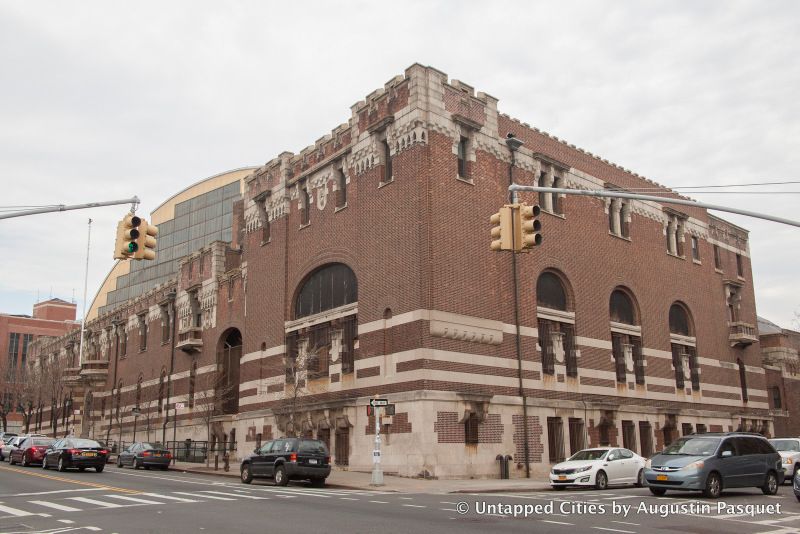
New York City’s historic armories can be seen all around the city, and are currently used for all kinds of purposes in addition to some that retain their original function. They were built between the 18th and 20th centuries for New York State volunteer militia, serving as storage of arms and housing. These monumental fortresses were meant to remind the public of the military’s might and ability to maintain domestic law. Thankfully for us, the militia took great care in designing their fortresses and we have been left with remarkable armories that remind us of an important time in our city’s history. Some still function as National Guard posts, but many have been repurposed since the mid-20th century.
Here is a list of the remaining armories in the five boroughs of New York City.
1. Rose Hill Armory Hall, Fordham Rose Hill Campus
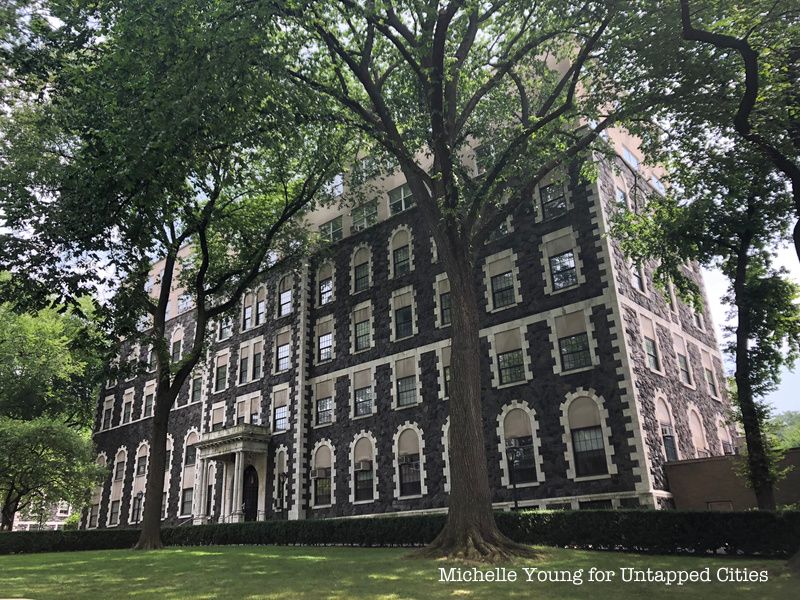
Year Built: 1838
Where: 441 East Fordham Road
Rose Hill Armory Hall at Fordham University in the Bronx dates back to when the university was known as St. John’s College. This building is the second Rose Hill Manor House, which contained an armory inside. The second manor house replaced an earlier one which according to legend was a headquarters for George Washington during the American Revolution. Today, it houses Campus Administration for Fordham.
2. Franklin Armory, 2nd Battery, Bronx
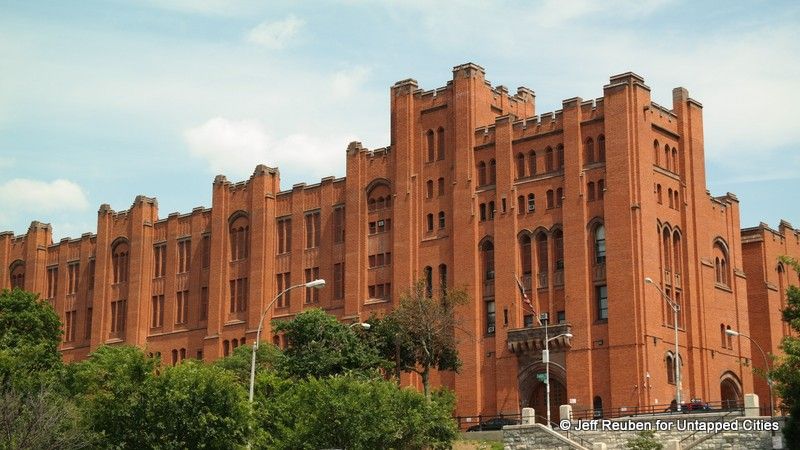
Year Built: 1906-1911
Where: 1122 Franklin Avenue
This Romanesque Revival style armory now provides fortification for the Franklin Women’s Shelter.
3. Kingsbridge Armory, 8th Regiment, Bronx
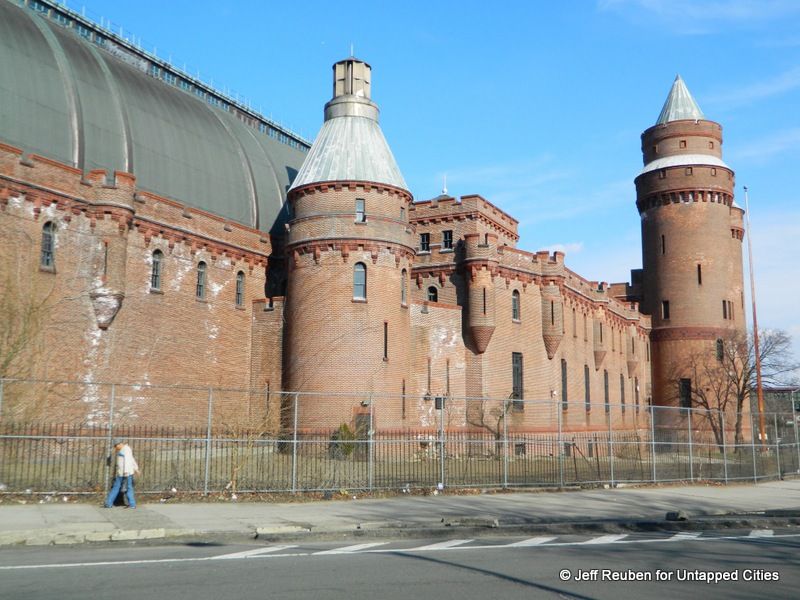
Year Built: 1913
Where: 29 Kingsbridge Road
When it was built, the Kingsbridge Armory was the largest armory in the world. Originally meant to store arms, the City of New York then used it as a homeless shelter until 2006. Since, plans have been made to make a large ice center.
4. Marcy Avenue Armory, 47th Regiment, Brooklyn
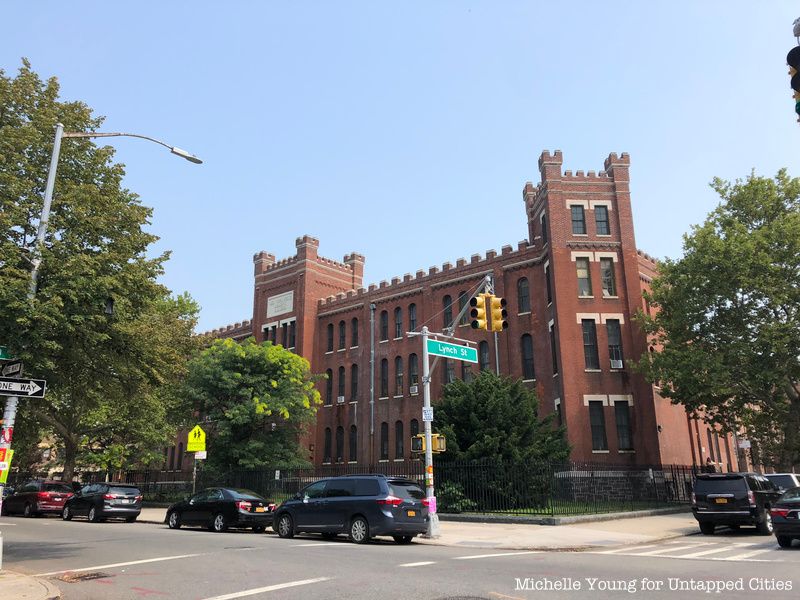
Year Built: 1883-1884
Where: 355 Marcy Avenue
Originally built by architect William A. Mundell, this armory is a typical fortress of urban armory architecture. Today, it is still open but seeking a new use.
5. Clermont Avenue Armory, 23rd Regiment, Brooklyn
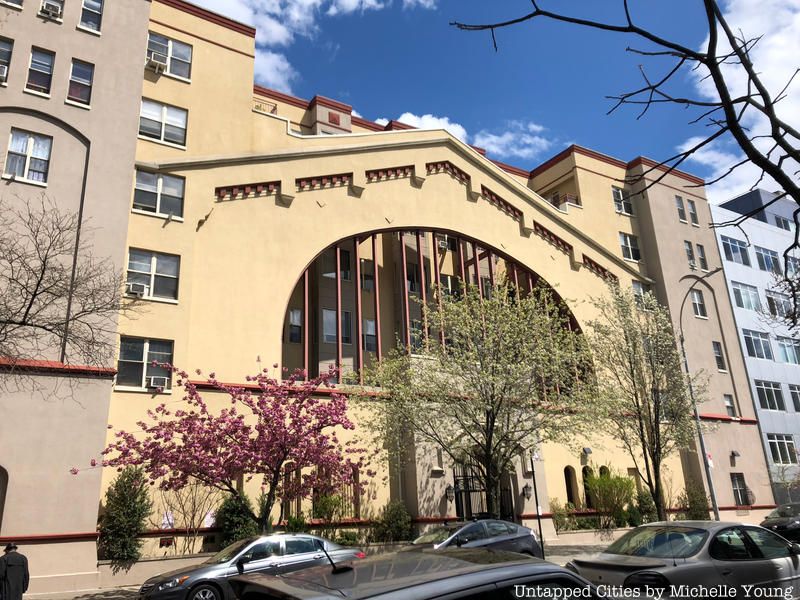
Year Built: 1872-1873
Where: 165-179 Clermont Avenue
The Clermont Armory was converted into an apartment building, though it leaves the building virtually unrecognizable. On this page, you can see the armory as it was before. It appears that only parts of the facade have been retained – including the semicircular opening and the entrance.
6. Dean Street Armory, 3rd (Gatling) Battery, Brooklyn
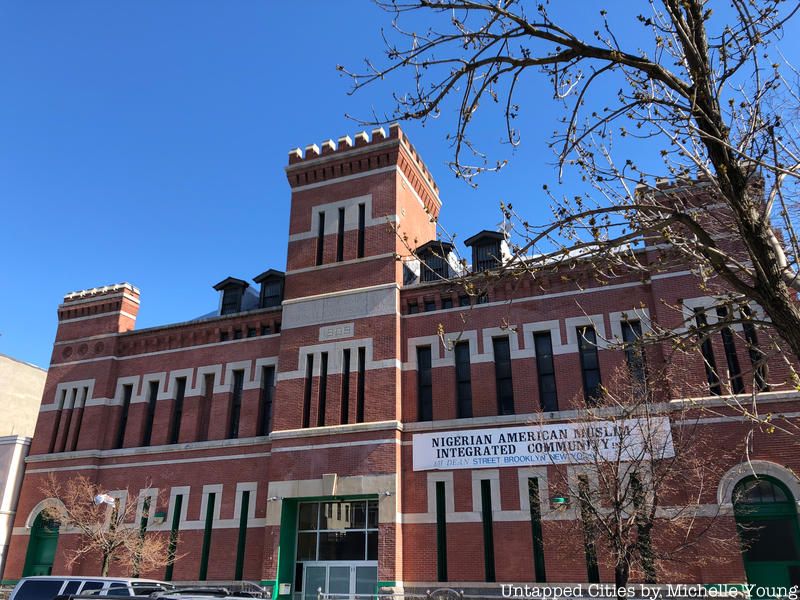
Year Built: 1885-1886
Where: 793-801 Dean St.
Architect Robert Dixon designed a “Medieval Norman Keep”-inspired military fortress that is now home to the Nigerian American Muslim Integrated Community.
7. Bedford Avenue Armory, Brooklyn, 23rd Regiment
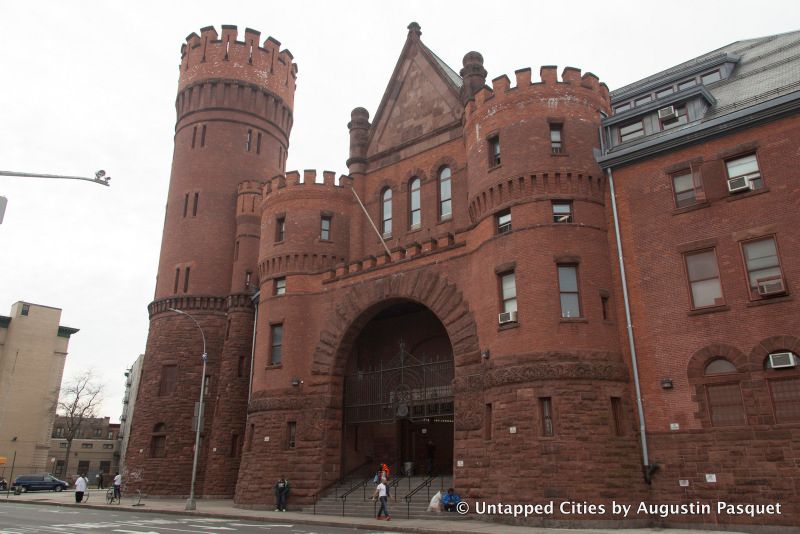
Year Built: 1891-1895
Where: 1322 Bedford Ave.
The 23rd Regiment Armory was designed by Fowler & Hough in the Romanesque Revival style. This castle-inspired structure is now a homeless shelter for men.
8. Eighth Avenue Armory, Brooklyn, 14th Regiment
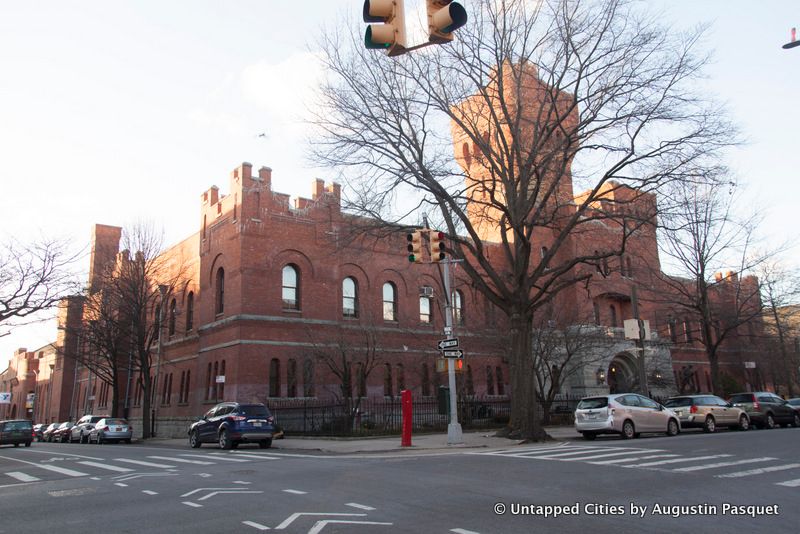
Year Built: 1891-1895
Where: 1402 8th Ave.
The Eighth Avenue Armory, now Park Slope Women’s Shelter, is reminiscent of a medieval castle with asymmetrical towers. It is also used by the Prospect Park YMCA as a sports complex.
9. Sumner Armory, Brooklyn, 13th Regiment
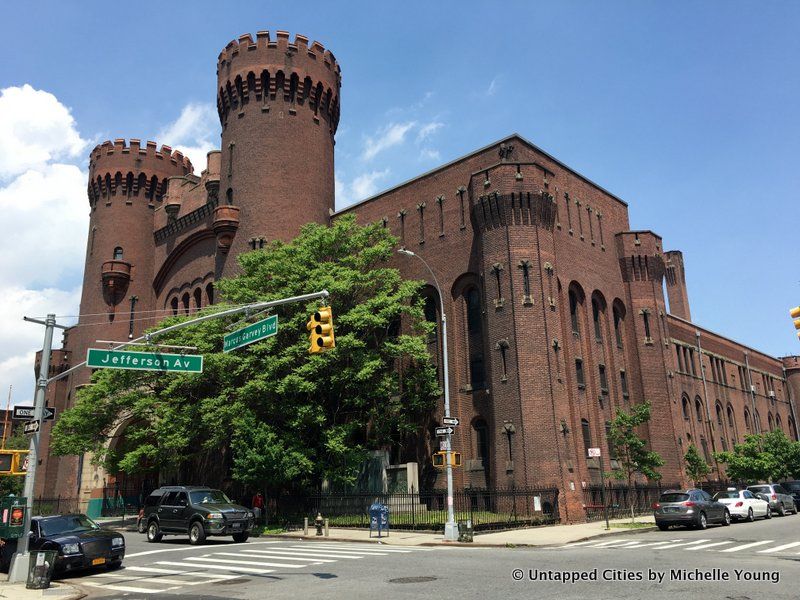
Year Built: 1892–1894
Where: 357 Marcus Garvey Boulevard
The Sumner Armory closed its unit of the National Guard in 1971 and is currently used as a homeless shelter for men. In 2013, plans were announced to turn the armory into a rec center.
10. Troop C Armory, Brooklyn, 101st Artillery

Year Built: 1903–1907
Where: 1579 Bedford Avenue
Built in the style of a “castellated armory,” this building needed to house equipment for cavalry, making it different from other armories in Brooklyn. It emphasizes its enormous drill shed, originally used for cavalry training, and the space has evolved along with military practice. There is still a National Guard unit here today.
11. Brooklyn National Guard Arsenal
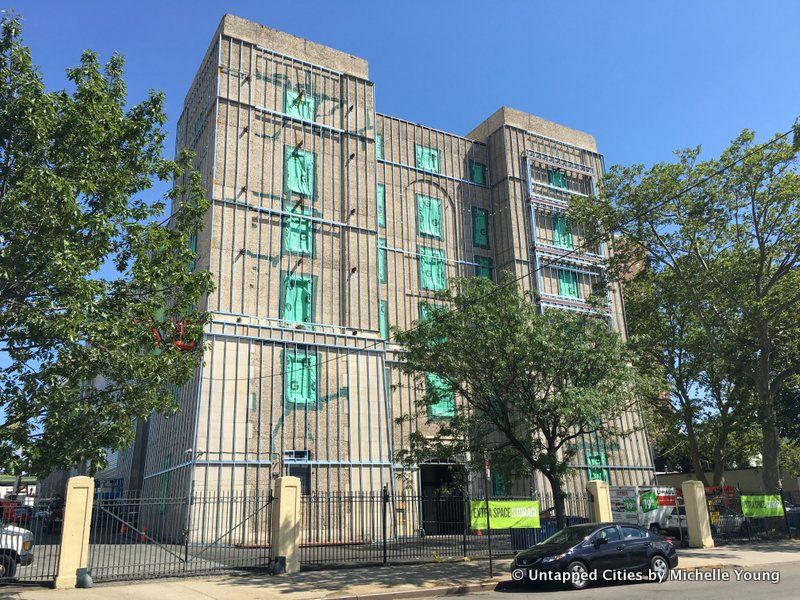
Year Built: 1925
Where: 201/207 64th St.
Also known as the Second Avenue Arsenal, the arsenal across from the Brooklyn Army Terminal is currently used as Extra Space Self-Storage facility. As of 2016, it’s undergoing renovation that will add a complete metal re-cladding on the facade. Soon, there won’t be much reminder of what it’s former use was.
12. Central Park Arsenal, 7th Regiment
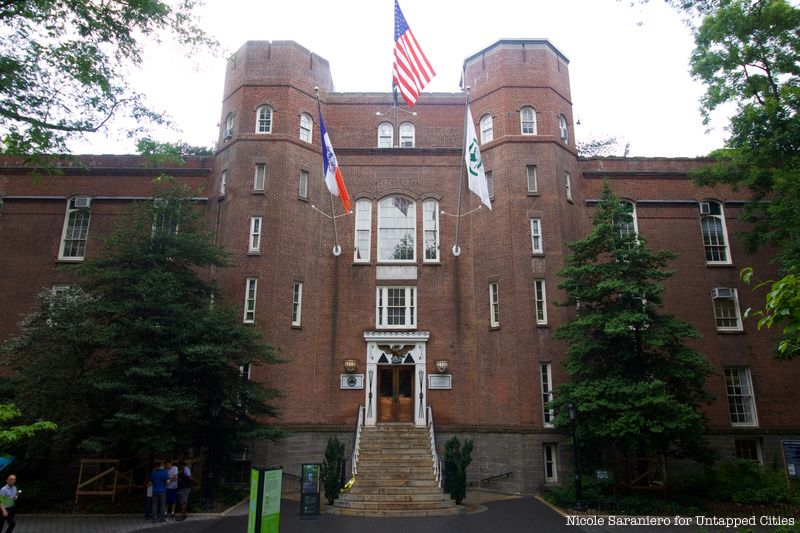
Year Built: 1848
Where: 830 Fifth Ave.
The Central Park Arsenal, previously part of the Museum of Natural History, is a modest brick building with Gothic Revival detailing. The Arsenal currently houses the New York City Department of Parks and Recreation and the Central Park Wildlife Conservation Center, part of the Central Park Zoo. For a history of Central Park’s Arsenal, click here.
13. Lenox Hill Armory, 7th Regiment
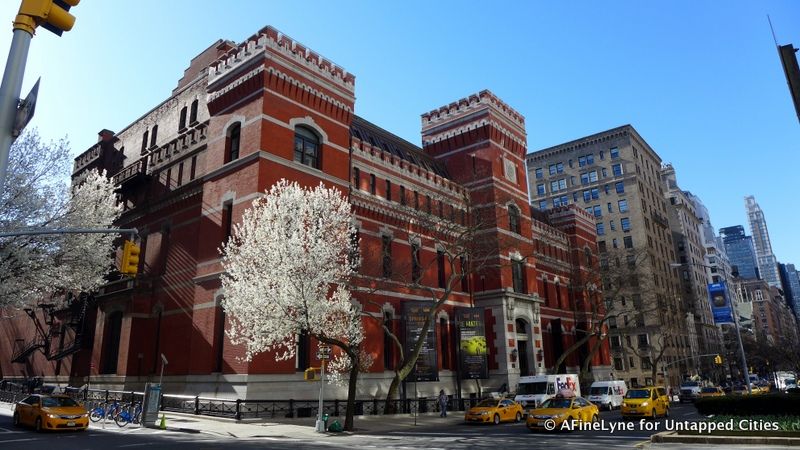
Year Built: 1877-1879
Where: 643 Park Ave.
The Seventh Regiment Armory located on Park Avenue was designed by Charles Clinton in the Gothic Revival style and is known for its wonderful woodwork, ornament, and stained glass. It is currently being used as an art space by nonprofit Park Avenue Armory and has been featured in scenes of Boardwalk Empire. See some photos inside the armory here.
14. Squadron A Armory
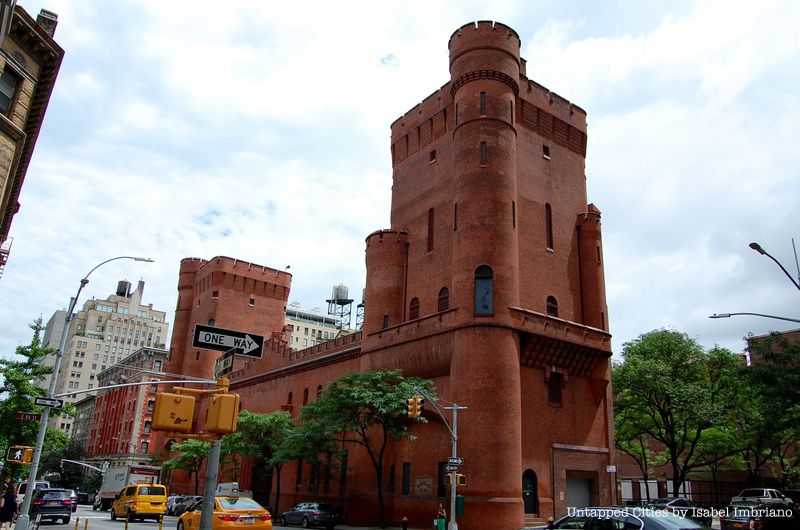
Year Built: 1894-1895
Where: 1339 / 1345 Madison Ave.
The Squadron A Armory was partially demolished in the 1960s, leaving the eastern and central portion to be used by Hunter College High School and Elementary School. The facade maintains thick walls and castle-like towers.
15. Lincoln Square Armory, 1st Battery
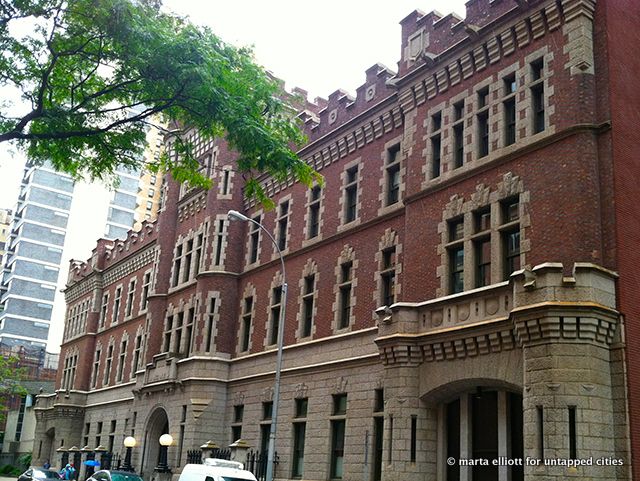
Year Built: 1901-1903
Where: 56 West 66th St.
After closing in 1976, the First Battery Armory is now part of ABC Television Studios in Lincoln Square.
16. Flatiron District Armory, 69th Regiment
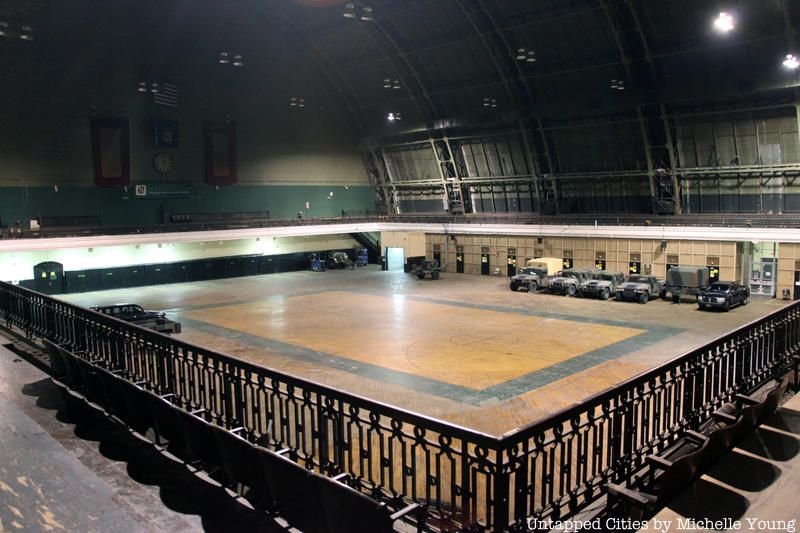
Year Built: 1904-1906
Where: 68 Lexington Ave.
The 69th Regiment Armory is one of the few in NYC that still houses its original regiment. Along with the U.S. 69th Infantry Regiment (aka the Fighting Irish), the armory also uses the space for special events and was home to the first Armory Show. It was also the first armory built in the Beaux-Arts style instead of akin to a medieval fortress.
17. Fort Washington Avenue Armory, 22nd Corps of Engineers
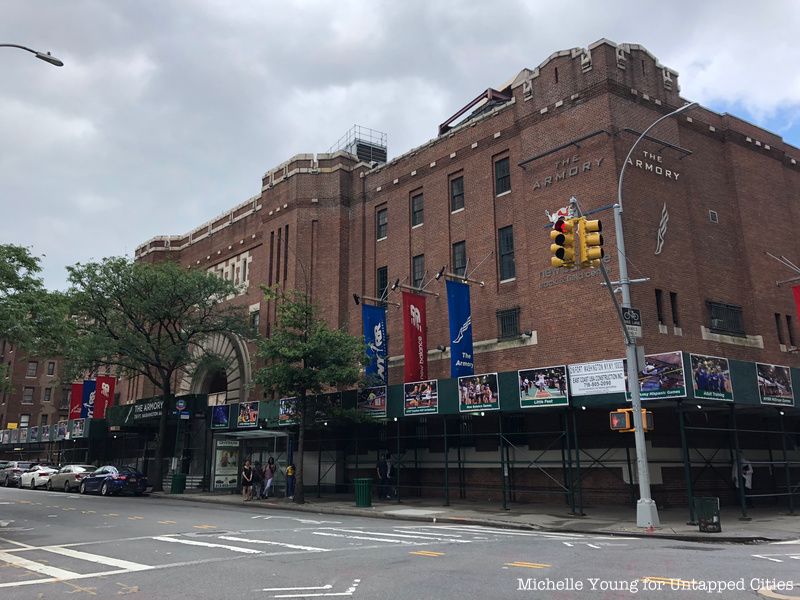
Year Built: 1911
Where: 216 Fort Washington Ave.
The Fort Washington Avenue Armory in Washington Heights is well known in the track & field world. It houses the National Track and Field Hall of Fame and on the third floor, the New Balance Track and Field Center: a full indoor track with 6 lanes of 200 meters and equipment for field events. The interior can be surprising as this huge brick armory has elements of Classical and of Romanesque Revival styles.
18. Harlem Armory, 369th Regiment
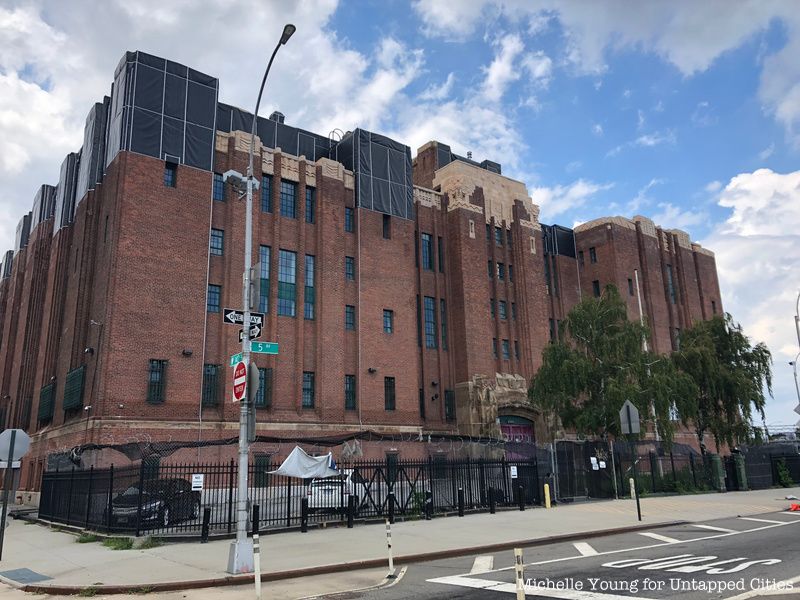
Year Built: 1924
Where: 2366 Fifth Ave.
The 369th Regiment Armory in Harlem was the first National Guard unit to be composed of exclusively black military men. The administration building was designed and built in the Art Deco style while the drill shed has elements of Gothic.
19. Flushing Armory, Queens, 10th Infantry Regiment
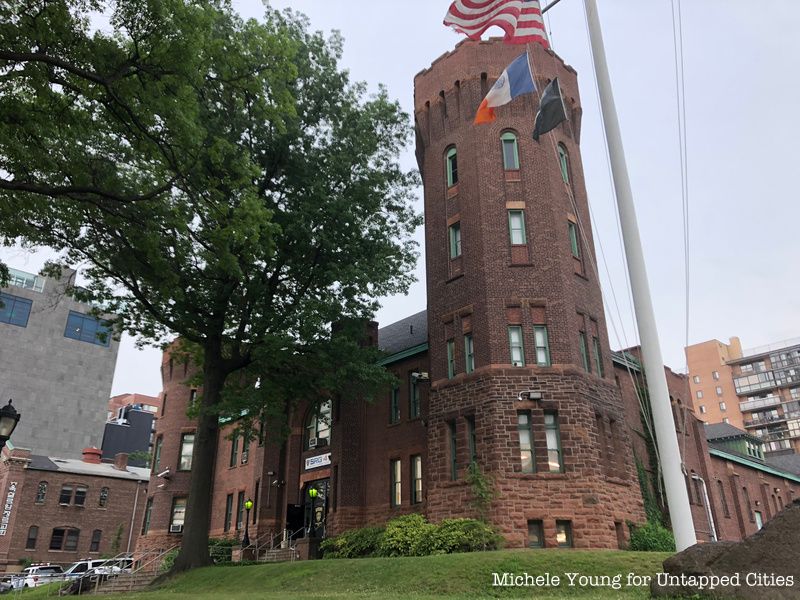
Year Built: 1904-1906
Where: 137-58 Northern Boulevard
The Flushing Armory is currently used by the NYPD Queens Task Force. This brick and stone castle in Queens has an octagonal tower and parapets.
20. Whitestone Armory, Queens, Naval Militia
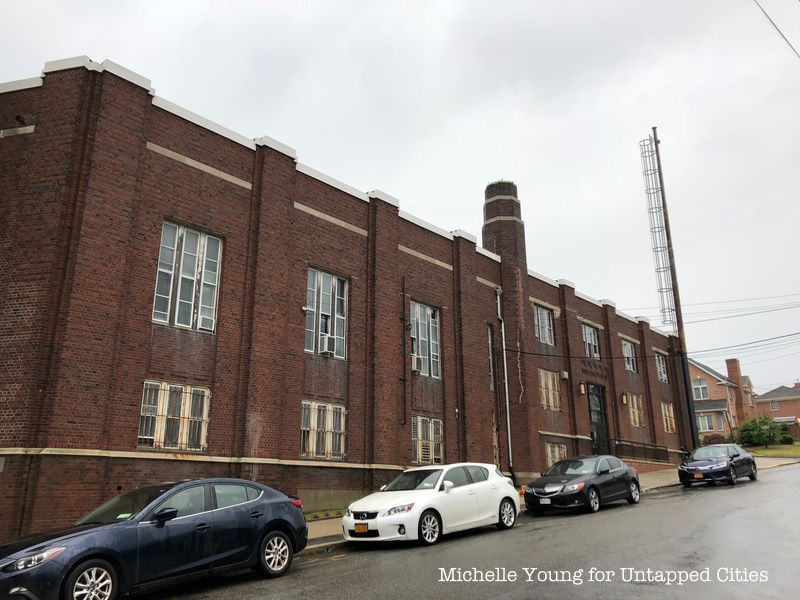
Year Built: 1913
Where: 150-74 6th Avenue
This armory is still used by the New York State Division of Military and Naval Affairs.
21. Jamaica (168th Street) Armory, Queens, 104th Field Artillery
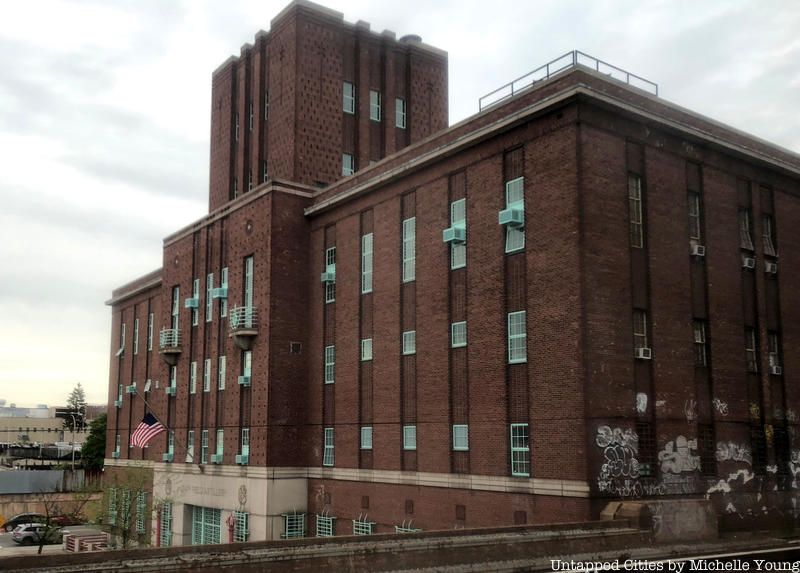
Year Built: 1936
Where: 93-05 168th St.
Currently used as a homeless shelter for women, the Jamaica Armory was built in the Art Deco style.
22. Manor Road Armory, Staten Island, 101st Cavalry Squadron
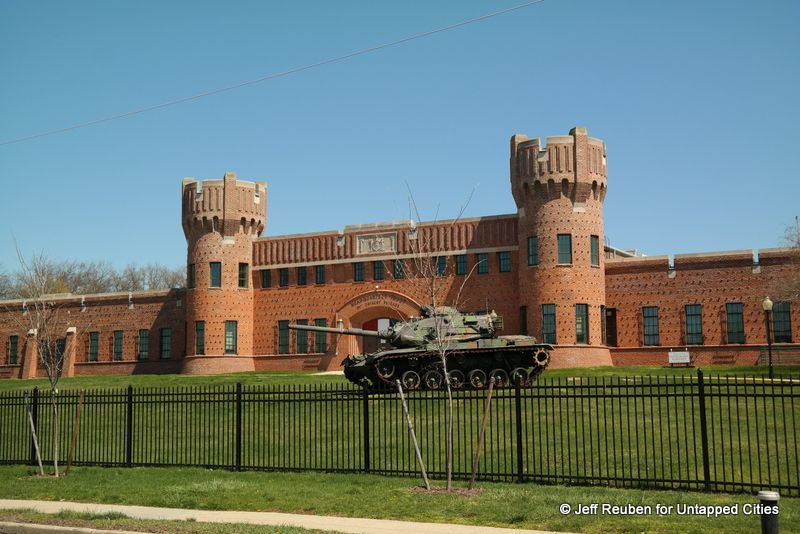
Year Built: 1884
Where: 170 Amity St. (now Roosevelt Ave.)
Complete with turrets and 3-story towers, the Staten Island castellated armory is still owned by the military: it’s now home to the 42nd Infantry Division of the National Guard.
The NYC armories and arsenals remind us in their beautiful, imposing way of a history that we often forget: that of volunteer militia participating in war much closer to home than we often imagine them to have been. These powerful structures with huge interior spaces are now being reused in a multitude of new ways around New York. From apartments, to homeless shelters, to indoor tracks, the city has quite successfully repurposed these armories and arsenals.
Next, check out 18 of NYC’s former forts.

